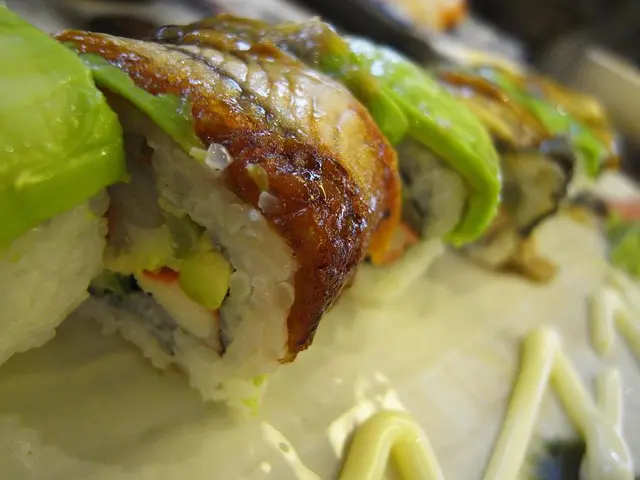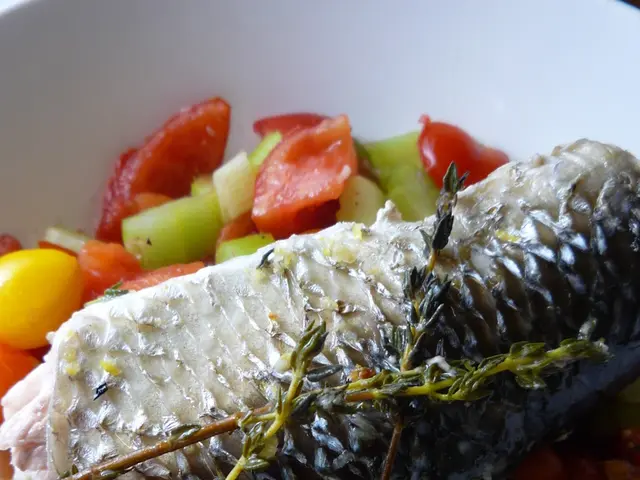Allergy season alert: Surprising foods that intensify your allergy symptoms
Allergy sufferers, buckle up! Here's a lowdown on foods that can make your hay fever worse during pollen season.
Spring is in the air, and so is the pollen count. For many allergy-stricken individuals, summer is anything but care-free. To manage symptoms, many rely on medication. However, a crucial aspect that often goes unnoticed is the impact of diet on pollen allergies. Certain foods can exacerbate symptoms, and it's best to avoid them.
Histamine Headache: Foods to Steer Clear of
Foods high in histamine can significantly worsen pollen allergies. As histamine is a key player in the onset of typical hay fever symptoms, it's wise not to increase our body's histamine levels through diet.
Aged Cheeses: Cheeses like parmesan, Gouda, Emmentaler, and Brie, which age and accumulate histamine, should be kept off the table.
Smoked Meats and Sausages: Products like salami, raw ham, or cervelat are high in histamine and can trigger allergic reactions.
Canned or Pickled Fish: Talk about histamine heavyweights! Canned herring in tomato sauce, sardines, and smoked salmon should take a back seat during pollen season.
Fruits: Bananas, pineapple, kiwi, and strawberries, as well as citrus fruits like oranges and lemons, are among the high-histamine fruits to avoid.
Vegetables: Tomatoes, spinach, and sauerkraut can trigger allergic reactions.
Wheat-Based Products: Pasta, flour, or semolina, although not high in histamine themselves, are often poorly tolerated by those with pollen allergies.
Cocoa and Dark Chocolate: Dark chocolate, in particular, contains high levels of histamine and should be consumed cautiously.
Red Wine and Alcohol: Red wine boasts significantly more histamine than white wine, up to four times as much. Additionally, alcohol blocks the enzyme diamine oxidase that breaks down histamine in the body and can even release existing histamine.
Beer - Even Non-Alcoholic: Top-fermented beer is particularly problematic as it contains more histamine than bottom-fermented beer. Non-alcoholic beer should be consumed in moderation.
Coffee and Tea: Although caffeine offers many health benefits, it can be problematic for allergies. Caffeine inhibits the enzyme diamine oxidase, making symptoms worse, even without containing histamine itself.
During allergy season, abstaining from these foods can help reduce allergy symptoms.
Sources:
- [1] "Histamine & Allergies" - AllergyLife lined
- [2] "The Anti-Inflammatory Diet" - Dr. Weil
- [3] "Histamine Intolerance" - Hopkins Medicine
- [4] "Foods to Avoid for Hay Fever" - Medical News Today
- [5] "The Seasonal Eating Guide" - Dr. John Douillard
In managing symptoms of pollen allergies during hay fever season, consider avoiding certain foods due to their high histamine content. These include aged cheeses like parmesan, Gouda, Emmentaler, and Brie, smoked meats and sausages such as salami, raw ham, or cervelat, canned or pickled fish like herring in tomato sauce, sardines, and smoked salmon, high-histamine fruits such as bananas, pineapple, kiwi, strawberries, citrus fruits, tomatoes, spinach, and sauerkraut. Additionally, wheat-based products like pasta, flour, or semolina, cocoa and dark chocolate, red wine, beer – both alcoholic and non-alcoholic, coffee, and tea can contribute to allergy symptoms due to histamine or caffeine content. By avoiding these foods, allergy sufferers might find relief from their symptoms during pollen season.








